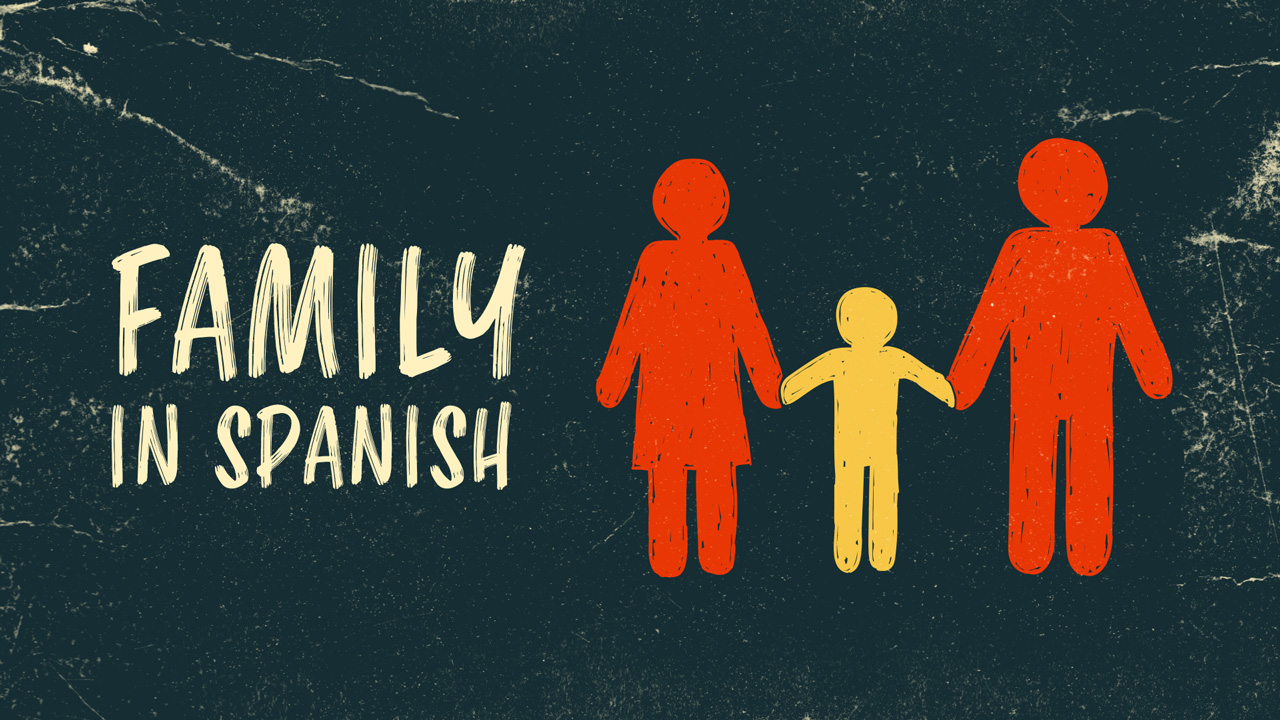Family is one of the most important things in life for many people. The Spanish language has a rich vocabulary when it comes to talking about familial relationships. In this article, we will explore the various ways to say “family” in Spanish.

The Basic Word for Family in Spanish
The most common Spanish word used to convey the concept of “family” is “familia.” This word can refer to your relatives or family members in a general sense. For example:
- “Voy a visitar a mi familia este fin de semana” – “I’m going to visit my family this weekend”
- “Los valores de la familia son muy importantes en esta cultura” – “Family values are very important in this culture”
The word “familia” is quite versatile. You can use it when talking about your own family or when discussing families in society at large.
Words for Nuclear Family Members in Spanish
In English, we typically use “immediate family” to refer to parents, siblings, spouses, and children. Spanish has specific words for each close family relationship:
- Padres: Parents
- Madre/Padre: Mother/Father
- Hijo(s)/Hija(s): Son(s)/Daughter(s)
- Hermano(s)/Hermana(s): Brother(s)/Sister(s)
- Esposo/Esposa: Husband/Wife
You would use these words when talking about your own nuclear family or someone else’s close relatives. For example:
- “Voy a visitar a mis padres este fin de semana” – “I’m going to visit my parents this weekend”
- “Mi hermana vive en otro estado” – “My sister lives in another state”
The Extended Family in Spanish
As families grow through generations, the vocabulary to describe familial links expands as well. Here are some common ways to refer to extended family members in Spanish:
- Abuelo(s)/Abuela(s): Grandfather(s)/Grandmother(s)
- Nieto(s)/Nieta(s): Grandson(s)/Granddaughter(s)
- Tío(s)/Tía(s): Uncle(s)/Aunt(s)
- Primo(s)/Prima(s): Cousin(s) (male/female)
- Cuñado(s)/Cuñada(s): Brother(s) or sister(s) in law
You would use these terms when discussing extended family gatherings, genealogy, family histories, and multi-generational households.
Putting it All Together: Sample Sentences
When talking about the connections within a family, Spanish speakers can get quite specific by stringing together multiple relationship terms. Here are some examples:
- “Los abuelos de mi esposo son de España” – “My husband’s grandparents are from Spain”
- “El hermano de mi suegra se casó el mes pasado” “My mother-in-law’s brother got married last month”
- “Mis primos por parte de padre viven en Chile” – “My cousins on my father’s side live in Chile”
As you can see, it’s possible to convey complex and sophisticated familial relationships in just a sentence or two in Spanish. Descriptors like “por parte de padre/madre” (on the father’s/mother’s side) allow you to take it to the next level.
Key Takeaways on Spanish Family Vocabulary
Saying “family” in Spanish is quite straightforward thanks to the versatile word “familia.” When you want to get more specific in your familial descriptions, there are set vocabulary words for nuclear family members like parents and children as well as extended relatives like grandparents and in-laws. And if you want to get really advanced, you can string together multiple relationship terms to capture the intricacies of a large multi-generational family!
Understanding how to describe family connections in Spanish is essential given the cultural emphasis placed on familial relationships in Hispanic/Latino communities. Whether you’ll be chatting casually about your visiting niece and nephew or having an in-depth discussion on ancestry with your Chilean coworker, knowing Spanish family vocabulary is key.



